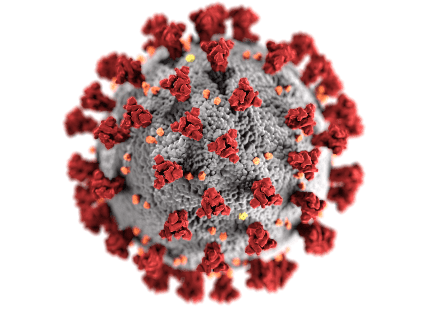 As if 2020 wasn’t bad enough from the standpoint of COVID 19, a fresh wave has hit the world again in 2021. But if you check to see how the rapid outbreak recurred, it’s vital to ponder what happened back earlier. Countries worldwide adopted fresh strategies to fight this battle- the first phase of the pandemic, that is. Studies have focused on three key metrics- political responses, financial responses, and healthcare responses.
As if 2020 wasn’t bad enough from the standpoint of COVID 19, a fresh wave has hit the world again in 2021. But if you check to see how the rapid outbreak recurred, it’s vital to ponder what happened back earlier. Countries worldwide adopted fresh strategies to fight this battle- the first phase of the pandemic, that is. Studies have focused on three key metrics- political responses, financial responses, and healthcare responses.
These have been crucial in deriving an idea of how things were back then and how it is now. The world is creating and distributing vaccines with varied efficacy levels. Lockdowns have been imposed (and continues in many parts of the world) important political transitions. Yes, the new virus mutations started reappearing. The early days of the pandemic have been practically unthinkable, and here are few nations that experienced tough times, learned a great deal, and still deal with the issue with renewed vigor.
Iceland
 Among the different nations, this certainly wouldn’t come to our minds at the start. So what if it’s a small country? The numbers speak volumes about how the spike in cases has continued through the spring season, much like Europe.
Among the different nations, this certainly wouldn’t come to our minds at the start. So what if it’s a small country? The numbers speak volumes about how the spike in cases has continued through the spring season, much like Europe.
The testing and quarantining model was adhered to initially. However, from this month, Iceland started reopening bars and gyms. While vaccination needs to increase, the total cases regarding the population showcase how the island nation has put a very good record of monitoring and following up. According to a report, this nation has the highest per-capita testing rate worldwide.
Canada

The ongoing struggles with the virus haven’t been great, but if compared to Canada’s immediate neighbor- the condition looks bright! The country underwent a real tough time when the last spike happened, and now “real fears” on the new mutated variants of the virus is not something we can disregard either. Vaccination, thankfully, has begun everywhere.
But Canada needs to work upon its overseas supplies- at least from the numbers point of view. The lack of domestic production is responsible here. Other industrially rich democracies are way ahead of Canada as regards the anti-lockdown protestors are concerned. Sadly, the second wave is on a full spree, and the provinces and territories had started reopening, even before vaccines reached 4% of the population. Sometimes political pressures can completely ignore basic health realities.
New Zealand
 If a country were to win an award for the “single best overall response to the pandemic,” then the most deserving one is undoubtedly New Zealand. Aggressive lockdowns, continuous follow-ups, strong emphasis on testing, and the brilliant leadership of one woman (Prime Minister) have proved before the rest of the world what it takes to work dedicatedly.
If a country were to win an award for the “single best overall response to the pandemic,” then the most deserving one is undoubtedly New Zealand. Aggressive lockdowns, continuous follow-ups, strong emphasis on testing, and the brilliant leadership of one woman (Prime Minister) have proved before the rest of the world what it takes to work dedicatedly.
Even now, the country should win the “best responder” awards for the fewer number of COVID-19 cases, especially if you compared to several advanced democracies. The only point of concern is slow vaccination. Besides, we are now taking active steps into the next phases of the pandemic, which means policymakers should enquire about how much people invested in themselves to master a plethora of skill sets to manage their responses in the current changing situations. But guess the country has done justice to that arena too!
Australia
When a neighboring country like New Zealand has been playing so well right from the start, there’s immense pressure on the next! But Australia has no doubt done a decent job at it. Recovery and resistance measures were adopted at the beginning, wherein transmission was the bare minimum. The country also had limited travel from both inside and outside the nation.
Suddenly when the spurt in new cases happened, the authorities started shutting down quickly. If you check the situation in Melbourne, you’ll be able to relate. But having said this, since the number of deaths and cases has reduced than earlier, it has somehow dampened the urgency level concerning vaccination drives. If it manages to pull that off again with renewed enthusiasm, Australia is not far too behind in progress and ongoing improvement.
Looking back at the varied ups and downs that these countries have witnessed, we can surely conclude that fighting a pandemic requires a collaborative effort. Besides that, it is also important for everyone to follow the suggestions of the World Health Organization in terms of safety precautions.




